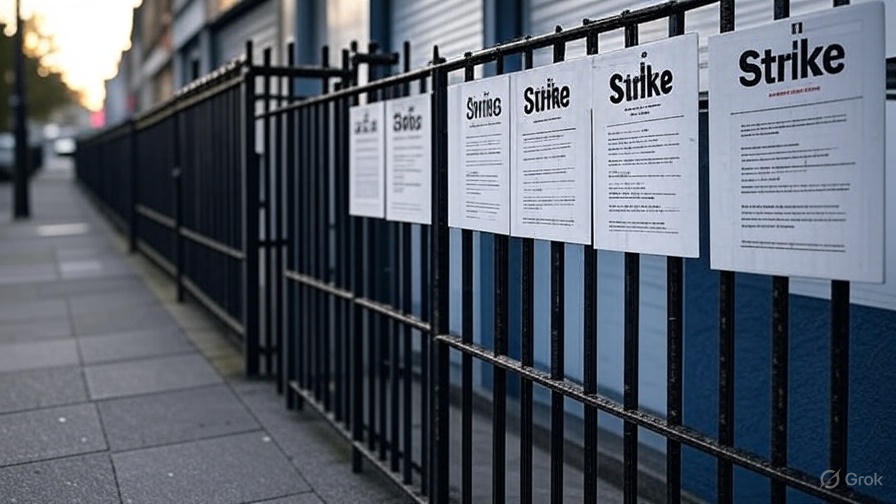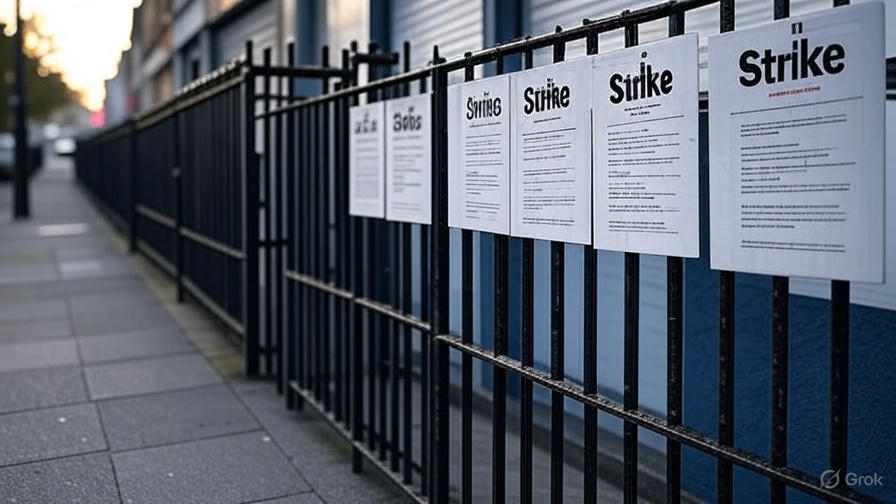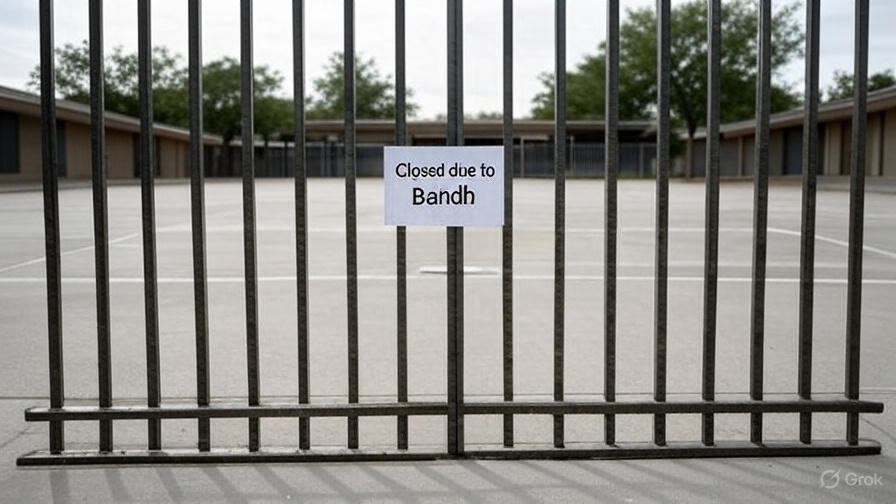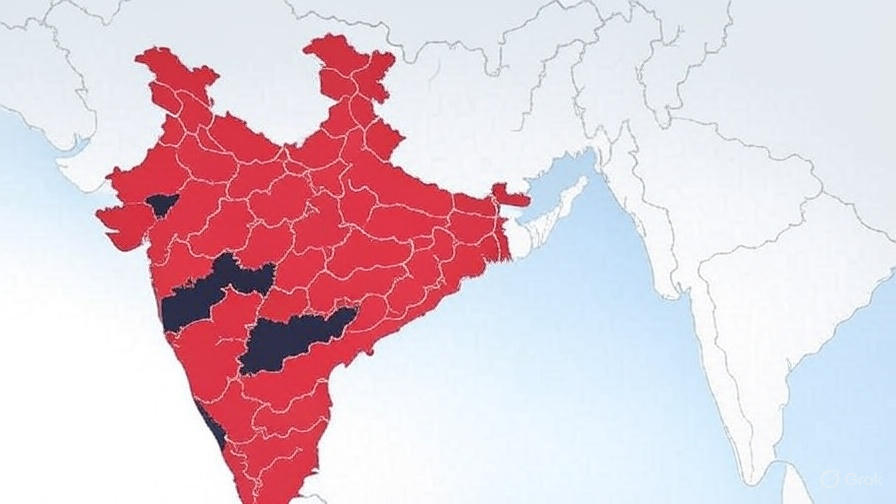
The term “Bharat Bandh” (India Shutdown) sends ripples across the nation, signaling widespread disruption. On July 9, 2025, India braces for another major nationwide strike. Called by a powerful coalition of central trade unions and farmer organizations, this bandh aims to bring daily life to a standstill to amplify critical demands. But what exactly will be affected? Why is this happening? And how should you prepare? This in-depth guide cuts through the noise, analyzing reports from leading publications like The Hindu, The Telegraph India, and Hindustan Times, to give you the clearest picture yet.
Why July 9th? The Core Demands Driving the Bharat Bandh
This isn’t a spontaneous event. The July 9th Bharat Bandh results from prolonged negotiations hitting a wall. Major players like the Indian National Trade Union Congress (INTUC), All India Trade Union Congress (AITUC), and various farmer fronts (echoing the persistence seen in the 2020-21 protests) are uniting under a common charter. Their demands strike at the heart of economic and social concerns:
- Scrapping the New Labour Codes: In Bharat Bandh, Unions vehemently oppose the four new labour codes, arguing they erode job security, weaken collective bargaining, and favour employers disproportionately. They demand a complete rollback.
- Guaranteed Minimum Support Prices (MSP): In Bharat Bandh, Farmer groups insist on a legally guaranteed MSP for all crops, calculated using the comprehensive Swaminathan Commission formula (C2 + 50%), not just promises.
- Reining in Soaring Inflation: With prices of essential commodities pinching every household, the bharat bandh calls for urgent government intervention to control inflation and provide relief.
- Social Security for All: In Bharat Bandh, Expanding and strengthening pension schemes and social security nets for unorganized sector workers, gig workers, and farmers is a non-negotiable demand.
- Halt to Privatization: In Bharat Bandh, Strong opposition to the privatization of public sector undertakings (PSUs) and essential services like railways, banking, and insurance.

Sector-by-Sector Breakdown: What to Expect on July 9
Based on consolidated reports and union announcements, here’s the anticipated impact:
- Banking & Financial Services (Major Disruption Expected):
- Public Sector Banks: Operations in branches of SBI, PNB, BoB, Canara Bank, etc., are expected to be severely crippled or completely halted. The All India Bank Employees’ Association (AIBEA) and Bank Employees Federation of India (BEFI) are key participants. Expect:
- Branch closures, especially in major cities and state capitals.Suspension of cheque clearing operations (potentially impacting transactions).Limited or no cash deposits/withdrawals over the counter.Delays in processing loans and other services.
- Public Sector Banks: Operations in branches of SBI, PNB, BoB, Canara Bank, etc., are expected to be severely crippled or completely halted. The All India Bank Employees’ Association (AIBEA) and Bank Employees Federation of India (BEFI) are key participants. Expect:
- Transportation (Widespread Chaos Anticipated):
- Road Transport: This is the biggest potential choke point. State transport corporation buses (like MSRTC, TSRTC, KSRTC) are likely to stay off the roads in most states. Participation by truckers’ unions could severely impact goods movement on national highways. Auto-rickshaws and taxis might also operate minimally in protest hubs.Railways: While core operations by railway staff might continue in bharat bandh, significant disruptions are highly probable. Expect:
- Blocking of tracks by protesters at key locations, delaying or cancelling trains.Strikes by goods train staff impacting freight movement.Potential protests inside major stations causing inconvenience. Check IRCTC status closely.
- Slower frequencies due to staff participation or solidarity actions.Crowding if road transport is completely halted.Potential entry/exit blockades at stations by protesters.
- Road Transport: This is the biggest potential choke point. State transport corporation buses (like MSRTC, TSRTC, KSRTC) are likely to stay off the roads in most states. Participation by truckers’ unions could severely impact goods movement on national highways. Auto-rickshaws and taxis might also operate minimally in protest hubs.Railways: While core operations by railway staff might continue in bharat bandh, significant disruptions are highly probable. Expect:
- Essential Services & Government Offices (Mixed Impact):
- Electricity & Water: Unions generally avoid disrupting these critical services. Supply is expected to remain largely unaffected. Minor administrative delays possible.
- Hospitals & Medical Services: Emergency services will function. Outpatient Departments (OPDs) in government hospitals might see reduced staffing or delays. Private hospitals largely unaffected.
- Government Offices: State government offices, especially in non-essential departments, could see thin attendance or complete shutdowns in stronghold areas. Central government offices might function but with delays. Expect disruptions in services like land registry, municipal offices, etc.
- Postal Services: Significant delays in mail and parcel delivery expected as postal unions are active participants.
- Education:
- Schools & Colleges: This varies drastically by state and district. In states with strong union backing (like Kerala, Tamil Nadu, Punjab, parts of Maharashtra, Odisha, Tripura), many government and aided schools, and some universities, are likely to declare a holiday. Private schools might remain open but with low attendance. Parents must verify with their specific institution.
- Private Sector & Businesses:
- Shops & Markets: In active protest areas, markets, wholesale mandis, and commercial establishments may remain shut, either voluntarily or due to union pressure/solidarity. Malls and major retail chains in metropolitan areas might stay open but with reduced staff.
- Manufacturing & Industry: Factories, especially in industrial belts, could see work stoppages if workers participate. Production losses are anticipated in sectors like manufacturing, textiles, and automobiles.
- E-commerce: Deliveries will likely face major delays due to road transport disruptions and potential warehouse staff participation.

Regional Variations: Where Will the Impact Be Felt Most?
Bharat Bandh intensity is never uniform. Expect the strongest impact in regions with historically robust trade union and farmer movements:
- Kerala: Near-total shutdown is common, affecting transport, shops, and institutions.
- Tripura, Odisha: Significant disruptions in transport and government services.
- Punjab, Haryana, Western UP: Heavy farmer participation likely leading to blocked highways and closed markets/mandis.
- Maharashtra (especially Mumbai, Thane), Tamil Nadu (Chennai, Coimbatore), Telangana (Hyderabad): Major disruptions in urban transport (buses) and banking.
- Delhi-NCR: Focused protests at key points (like borders, Jantar Mantar, government offices), transport disruptions possible, Metro remains vital but crowded.
- Gujarat, Rajasthan, BJP-ruled Hindi Heartland States: Impact might be more localized or less severe, but banking and transport corridors can still be affected.

Navigating the Bharat Bandh: Practical Tips for 9 July 2025
- Plan Travel Rigorously: Avoid non-essential road travel, especially interstate. If unavoidable, start very early and check real-time traffic/road blockage updates (use apps like Google Maps cautiously, but verify locally). Trains/Metros are the best bet, but expect crowds and delays.
- Banking & Payments: Complete urgent cash withdrawals, cheque deposits, or online payments BEFORE July 9th. Expect digital payment gateways (UPI, Net Banking) to function, but physical banking access will be limited.
- Stock Essentials: Ensure you have sufficient cash, medicines, and essential groceries for a day or two.
- Stay Informed: Follow reliable local news sources and official social media handles of transport corporations (buses, metros, railways) for real-time updates on services.
- Work & School: Confirm work-from-home options. Verify school/college status directly with the institution – don’t rely on generic announcements.
- Safety First: Avoid areas where large protests are planned. While most bandhs are peaceful, unexpected situations can arise in large gatherings.
Beyond the Disruption: The Weight of the Demands
While the immediate focus is on the day’s inconvenience, the Bharat Bandh highlights deep-seated anxieties:
- Labour Rights vs. ‘Ease of Business’: The labour code protests represent a fundamental clash over the future of worker protections in a rapidly changing economy.
- Agricultural Distress is Persistent: The unwavering demand for legal MSP underscores the ongoing crisis in farm incomes and the failure of piecemeal solutions.
- Inequality & Inflation: The call to control inflation and expand social security reflects the growing burden on the working class and poor amidst economic growth that hasn’t been evenly shared.
These issues aren’t resolved in a day. Bharat Bandhs are a disruptive tactic, but they emerge from a perceived lack of dialogue and action through regular channels. (Internal Link: Understanding India’s farm crisis: /root-causes-of-indian-agricultural-distress)
Conclusion: More Than Just a Closed Shop
The July 9th Bharat Bandh is a significant event with the potential to disrupt the rhythm of daily life across vast parts of India. Banking, public transport, and schools are likely to bear the brunt, with regional variations in intensity. While the immediate hassle is undeniable, this shutdown is a stark manifestation of unresolved grievances concerning workers’ rights, farmer livelihoods, inflation, and the direction of economic policy.
Stay prepared, stay informed, and stay safe. Use this day as a moment to reflect on the complex economic and social challenges that drive such widespread actions. The true resolution lies not just in the passing of a bandh, but in meaningful dialogue and concrete steps addressing the legitimate concerns raised by millions of workers and farmers who form the backbone of the nation.
